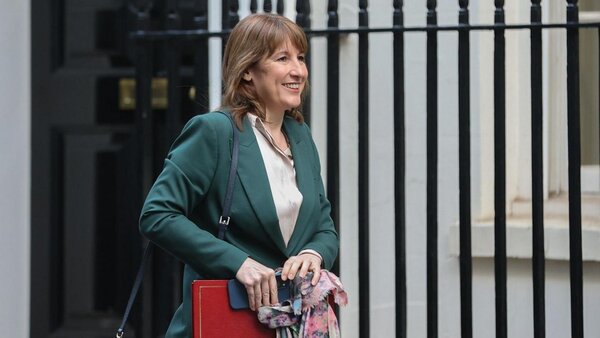
As the UK braces for possible changes to inheritance tax (IHT) under the new Labour government, families with high-value estates are exploring novel ways to manage future tax bills.
One solution gaining traction is inheritance tax insurance, a niche but increasingly popular financial product designed to cover potential IHT liabilities upon death. With the average IHT bill now standing at around £216,000, many wealthier households are seeking peace of mind in the form of a policy that promises to cover this cost when it matters most.
Specialist advisers report a marked rise in interest from clients looking to shield their loved ones from unexpected financial burdens. While not a mainstream product, inheritance tax insurance is being positioned as a way to ease the pressure on beneficiaries, especially in situations where assets are tied up in property or other illiquid investments.
However, the product is not without its complexities, from pricing structures to medical underwriting, and financial planners urge caution before jumping in.
What Is Inheritance Tax Insurance?
Inheritance tax insurance is a form of life insurance specifically structured to pay out an amount equal to the estimated IHT bill. When someone dies, the policy pays their beneficiaries a lump sum to cover the tax due on the estate, preventing the need to sell off assets or delay probate.
Policies are often written in trust, ensuring the payout does not form part of the taxable estate. This strategy helps families maintain control over inherited assets while sidestepping the immediate financial hit that can follow a loved one's death
Why Interest Is Growing
The growing interest in inheritance tax insurance can be linked to several factors. First, the IHT threshold (the nil-rate band) has remained frozen at £325,000 since 2009, even as property values and personal wealth have increased significantly. As a result, more estates are now liable for tax.
Second, political uncertainty has prompted concern about possible reforms under a Labour government. While no official policies have been enacted yet, suggestions that reliefs and allowances might be scaled back have left many affluent families looking for financial safeguards.
Who Is Using It?
Typically, clients who take out inheritance tax insurance are older, in their 60s or 70s, and have estates valued in the millions. These are often individuals who have worked hard to accumulate wealth and want to pass on as much as possible to the next generation without leaving them with a hefty tax bill.
Financial advisers note that many of these clients already have wills and estate plans in place but are looking for an extra layer of protection. The insurance acts as a financial buffer, especially when most of the estate is made up of property, which cannot be easily liquidated to pay tax.

How Much Does It Cost?
Premiums for inheritance tax insurance vary based on several factors, including age, health status, and the size of the estate. Monthly costs can range from several hundred to several thousand pounds, depending on the level of coverage required.
Medical underwriting is usually required, meaning applicants must undergo health assessments to determine eligibility and pricing. Some providers offer guaranteed acceptance policies up to a certain age, but these tend to be more expensive.
Alternatives and Cautions
While inheritance tax insurance offers peace of mind, financial planners caution that it isn’t suitable for everyone. Alternatives include making lifetime gifts, using trusts, or investing in business property relief-eligible assets, all of which can reduce the taxable value of an estate.
Advisers also stress that the product should form part of a wider estate planning strategy, rather than being relied on in isolation. Poorly structured policies or misunderstood terms can leave families exposed despite good intentions.
What the Experts Say
"Clients want certainty," said James Andrews, a chartered financial planner at Wesleyan. "We’ve seen a noticeable uptick in demand as people look for clear ways to handle inheritance tax risk."
Andrews added that while the product isn't new, the current political climate has elevated interest levels. "It’s about controlling what you can and giving your family one less thing to worry about."

Conclusion
With potential tax reform on the horizon, inheritance tax insurance is emerging as a go-to solution for wealthy families looking to protect their legacy. While not suitable for everyone, it provides a financial safety net that can ease the burden on beneficiaries. As ever, professional advice is essential.











